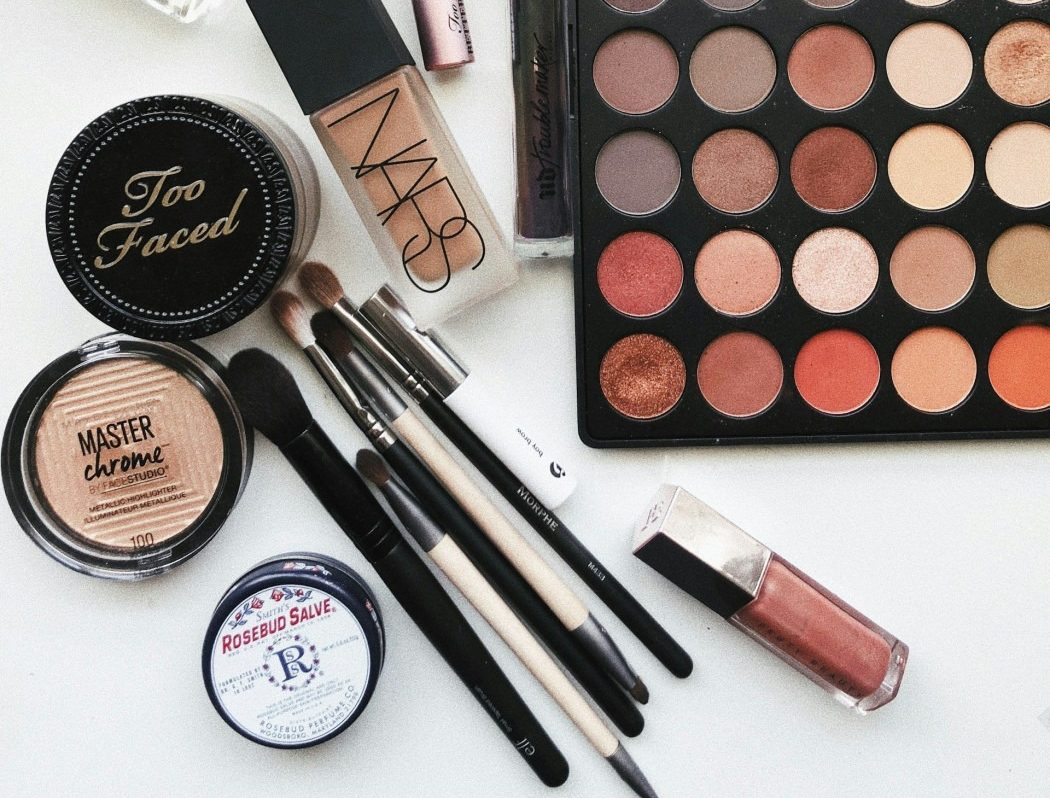Beauty with a conscience: are my go-to cosmetics environmentally friendly?
Ever since my early teens, I have been a die-hard fan of the beauty industry. There was a point in my life where all my pocket money and odd savings went straight to the newest makeup palette, or a brand-new facewash meant to change your life. My younger sister, after filling her dressing table with the trendiest products from TikTok, has become the newest member of this consumerist trend. However, perhaps due to the naivety of my age, or that being conscious of using single-use plastics was not really a thing, I never considered the climate-based influences my beauty purchases would have on the wider world.
From the 1st October 2023, the UK government introduced a policy-based crackdown on the usage of single-use plastics, including plastic cutlery, polystyrene cups, and food containers, which would now no longer be sold in England. This was an extension of the global crackdown on items such as plastic straws and cotton buds, in response to the millions of marine wildlife dying per year due to plastic-consumption-based complications. However, this rhetoric is yet to be applied to the beauty industry, with reports suggesting that your favourite skincare and makeup products contribute 120 billion units of unrecyclable packaging to landfill on a yearly basis. Much of this plastic cannot be recycled, with packaging often consisting of multi-component plastic materials that fail to pass recyclable regulations. With plastics being detrimental to maintaining the quality of life on our planet, surely necessary hygiene products should convert to a plastic-free presentation, especially with consumers often buying the same products on a weekly or monthly basis.
Having an array of beauty products has almost become a competition, regardless of the plastics present.
In an article by Forbes, the sheer amount of plastic usage in the beauty industry is put down to originate from the mindset of ‘bigger is better’, with consumers opting for a larger bottle to gain their best value for money. From an honest perspective, I completely buy into this concept, with many of my go-to drugstores often adding hard-to-miss offers on the larger sizes of my favourite products. From a student perspective, it’s hard not to go after a good deal even when I don’t particularly need the bigger quantity. Just from browsing the Superdrug website alone, a staple product of mine, being Garnier Micellar Water, costs £4.99 for a 200ml bottle, and £9.99 for a 700ml bottle, meaning consumers only have to pay double the price to get nearly four times the amount of product.
The beauty industry has completely transformed from merely maintaining personal hygiene, to an explosion of an industry geared on making you the most glamourous version of yourself you can be. This mindset has been deeply exacerbated by the beauty takeover of the Tik Tok community, with countless social medias pages reviewing the hottest new beauty products and representing them in a way that makes them impossible to resist. The likes of brands such as Bubble skincare, and Drunk Elephant, have become ridiculously popular overnight, with individuals as young as eight years old wanting to buy the whole collection, ignoring the constrictions of price. Having an array of beauty products has almost become a competition, regardless of the plastics present. Many consumers see pretty plastic packaging as a draw to buy certain products, with the ‘Bubble Slam Dunk Hydrating Moisturiser’ being purchased for the way the packaging arranges your moisturiser to look like a flower.
The global cosmetic giant Lush has been consistently displaying their products in a more environmentally friendly format for years.
The beauty industry does seem to be changing, but at a snail’s pace. The global cosmetic giant Lush has been consistently displaying their products in a more environmentally friendly format for years. Their ethos of ‘going naked’ with packaging has not reduced their global popularity, with their bestselling products, including shampoo bars and bath bombs, not contributing any plastic to the environment and being taken home in paper bags. A similar burst in natural deodorant products has been pioneered by the brand Wild, which combatted the gap in the market for natural deodorant and popularized the use of refillable, plastic-free packaging. From personal use, Wild deodorant works as good as its aerosol counterparts, and also acts as a brilliant and affordable introduction to the plastic-free consumer world.
Until the use of plastic-free beauty products are introduced more broadly, it is hard to say how easy and affordable it will be to convert to more climate-friendly beauty products. However, we can all learn a lesson by only buying our favourite products when necessary, and not falling into consumerist traps by overbuying the newest crazes which truly have a detrimental effect in adding unnecessary plastic into our environment.

Comments